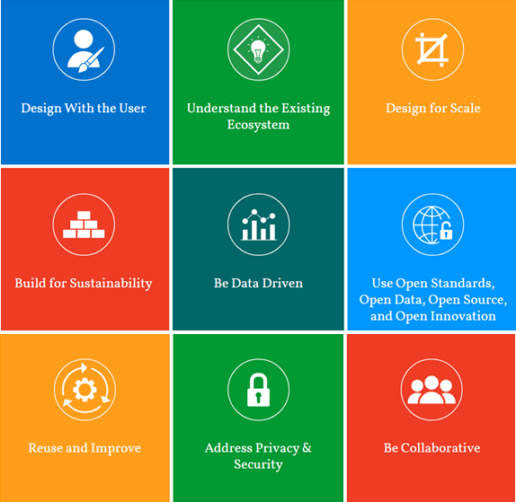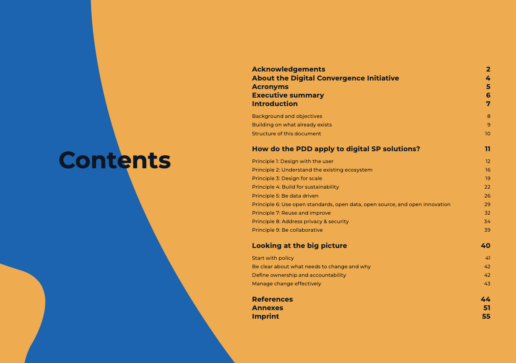Publication: “Applying the Principles for Digital Development in Social Protection”
We are thrilled to present the first publication from the Digital Convergence Initiative (DCI) – a guide on applying the Principles for Digital Development for the social protection sector!
The goal of this paper is to use the Digital Principles to create a common foundation for the development of digital solutions in social protection.

What is the challenge?
Social protection information systems have enormous potential to help people in need. However, if they are designed or implemented improperly, they can be risky, especially for vulnerable individuals. Therefore, it is crucial to consider and address these risks appropriately.
In other sectors, experts have developed “principles” or “good practices” to ensure that digital technologies are inclusive, secure, rights-based, and purpose-driven. These principles have been helpful in mitigating risks related to the creation and deployment of digital technologies. As a result, more inclusive and secure digital systems that meet the needs and rights of society have emerged.
The Digital Convergence Initiative recognized these efforts and aimed to consolidate existing guidance to develop consensus-based principles for building inclusive and robust digital social protection systems. They drew on the experiences and practices of other sectors to inform these principles, hoping to ensure that digital social protection systems in future are secure, rights-based, inclusive, and purpose-driven.
To achieve consensus on standards and best practices for digital social protection systems, the Digital Convergence Initiative (DCI) aims to build on existing frameworks rather than reinvent the wheel. Therefore, the broad-ranging Principles for Digital Development were used as the basis.

Structure of the guide
All the principles are presented in the guide with their original definition, followed by the perspective of social protection and key actions for practical application.
1. Design with the user
2. Understand the existing ecosystem
3. Design for scale
4. Build for sustainability
5. Be data-driven
6. Use open standards, open data, open source, and open innovation
7. Reuse and improve
8. Address privacy and security
9. Be collaborative

The guide identifies challenges to the implementation of these principles and provides suggestions for overcoming them. It also offers examples of best practices and pitfalls at the country level, along with additional resources. The guide takes a holistic view of social protection and outlines the overarching organizational factors that must be considered when applying the principles of digital development. These factors include “start with policy,” “be clear about what needs to change and why,” “define ownership and accountability,” and “manage change effectively.”
It is crucial to consider these factors to ensure the success of digitalization in the social protection sector. While the principles outlined in the guide refer to the design of digital solutions, the document emphasizes a broader perspective on social protection, taking into account the fundamental aspects of policy, accountability, and change management. By doing so, the guide provides a comprehensive framework for the practical application of digital development principles in social protection, enabling organizations to leverage technology to achieve their goals more effectively.
For more details klick the button below.